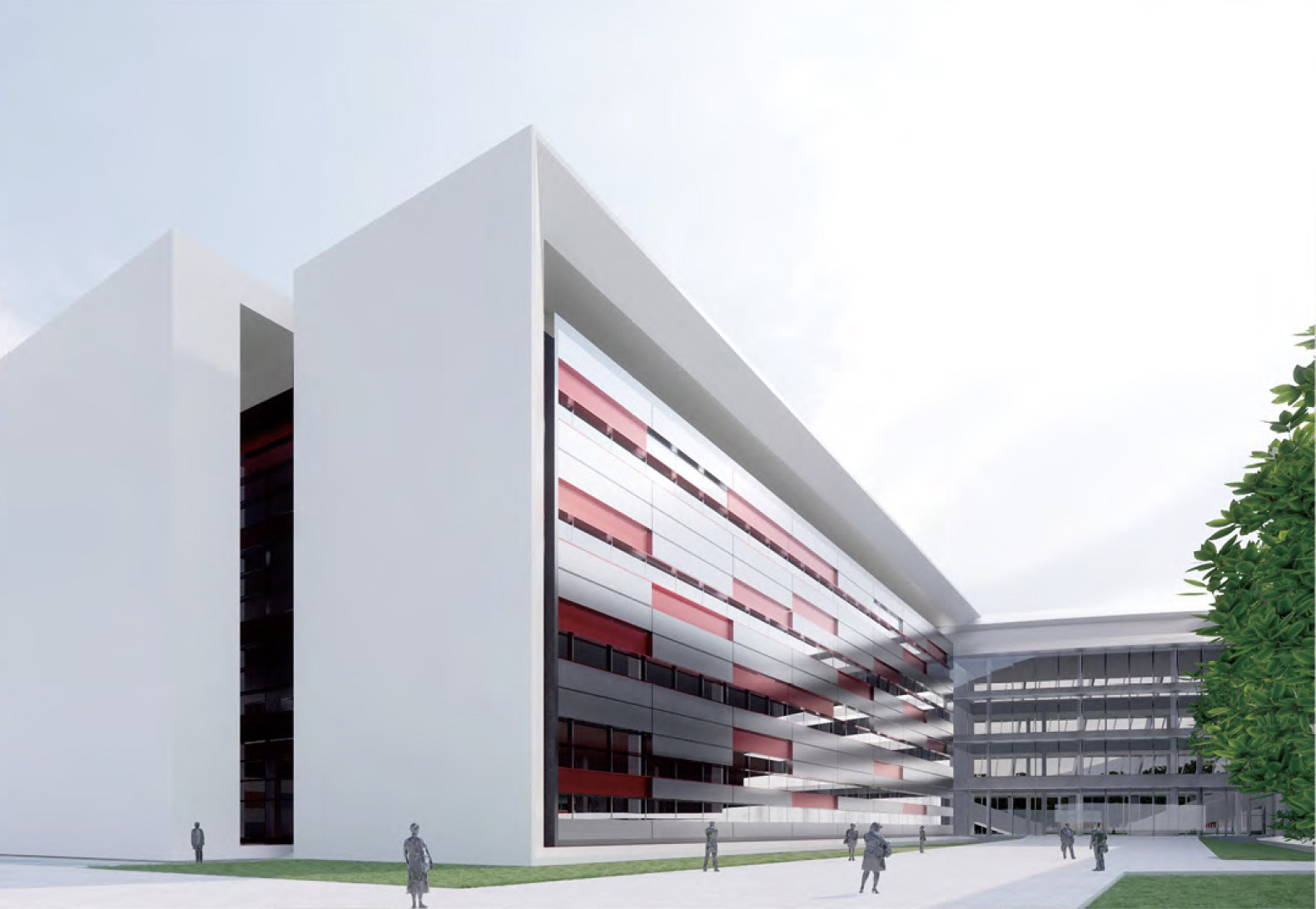The Difference Between Residential Proxy Server and Datacenter: Which One Should You Choose?

Understanding Proxy Servers and Their Importance in Web Browsing
In the world of web browsing, privacy and security are of utmost importance. Proxy servers play a vital role in safeguarding our online activities by acting as intermediaries between our devices and the websites we visit. They provide an additional layer of protection by masking our IP addresses and encrypting our data.
A proxy server acts as a gateway between a user’s device and the internet. It receives requests from users, forwards them to the desired websites, retrieves the requested information, and then sends it back to the user. This process helps in maintaining anonymity while browsing the web.
There are two main types of proxy servers: residential proxies and datacenter proxies. Residential proxies are IP addresses assigned to real residential locations, making them appear more legitimate to websites. On the other hand, datacenter proxies are created in data centers without any physical location association.
The importance of proxy servers in web browsing cannot be overstated. They allow users to access geo-restricted content by changing their virtual location, ensuring unrestricted access to websites that may be blocked or limited in certain regions.
Moreover, proxy servers enhance privacy by preventing websites from directly accessing users’ IP addresses and personal information. By using a proxy server, users can browse anonymously without leaving behind traces of their online activities.
In conclusion, understanding proxy servers is crucial for anyone concerned about their web browsing privacy and security. Whether it’s residential proxies or datacenter proxies, these tools provide an essential layer of protection while enabling access to restricted content on the internet.
Residential Proxy Server: What it is and How it Works
Residential proxy servers play a crucial role in ensuring online privacy and security. But what exactly are they and how do they work?
A residential proxy is an intermediary server that routes internet traffic through residential IP addresses. Unlike datacenter proxies, which use IP addresses associated with data centers, residential proxies use real IP addresses assigned to physical devices in households.
The primary advantage of using a residential proxy is the ability to mimic genuine user behavior. By routing your requests through residential IP addresses, you can appear as a regular user rather than a bot or automated script. This is particularly useful for tasks such as web scraping, ad verification, and accessing geo-restricted content.
One type of residential proxy that is gaining popularity is the rotating residential proxy. With this type of proxy, the IP address changes periodically, giving users even more anonymity and preventing websites from detecting and blocking their activities.
There are several benefits to using residential proxies, like proxy-seller.com has. Firstly, they provide higher anonymity compared to other types of proxies since they use real IP addresses associated with home users. Secondly, by rotating IP addresses or using multiple proxies simultaneously, you can distribute your requests across different locations and avoid being detected or blocked by websites.
In summary, residential proxies offer a reliable solution for maintaining online privacy and bypassing restrictions while simulating genuine user behavior on the internet. Whether it’s for web scraping or accessing geo-restricted content, these proxies play an essential role in various online activities.
Datacenter Proxy: Exploring its Features and Functionality
Datacenter proxies have become an integral part of many businesses’ online operations. These proxies offer a range of features and functionalities that are beneficial for various use cases. In this section, we will explore the definition of datacenter proxies and delve into their key features and advantages.
A datacenter proxy is a type of proxy server that routes internet traffic through a datacenter facility. Unlike residential proxies that use IP addresses assigned to individual homes, datacenter proxies utilize IP addresses provided by datacenters. These IP addresses are not associated with any specific internet service provider or location.
One notable feature of datacenter proxies is the ability to provide users with dedicated IP addresses. This means that each user is assigned a unique IP address for their online activities. Dedicated IPs offer several benefits such as improved anonymity, enhanced security, and better control over online reputation management.
Another advantage of using datacenter proxies is the speed and performance they offer. Since these proxies are hosted in datacenters with high-speed connections, they can provide faster response times compared to other types of proxies. This can be particularly advantageous for tasks that require quick and efficient web scraping, automation, or accessing geo-restricted content.
Additionally, datacenter proxies often come with large pools of available IP addresses, allowing users to rotate between them seamlessly. This feature helps prevent IP blocking or detection by websites or online platforms that may impose restrictions on excessive requests from a single IP address.
In summary, datacenter proxies offer dedicated IP addresses and boast superior speed and performance advantages due to their connection to high-speed datacenters. These features make them an essential tool for various applications such as web scraping, automation, ad verification, SEO monitoring, and more.
Differences Between Residential Proxies and Datacenter Proxies
- IP Source: Residential proxies use IP addresses assigned by internet service providers (ISPs), while datacenter proxies use IP addresses provided by datacenters.
When it comes to proxies, there are two main types: residential proxies and datacenter proxies. Understanding the difference between these two types is essential for anyone looking to utilize proxies for various online activities.
Residential proxies use IP addresses that are assigned by internet service providers (ISPs). These IP addresses are associated with real residential locations, making them appear more authentic and less likely to be blocked or flagged by websites. Residential proxies provide users with a high level of anonymity and can be particularly useful for tasks such as web scraping, ad verification, and accessing geo-restricted content.
On the other hand, datacenter proxies use IP addresses provided by datacenters. These IP addresses are not associated with physical residential locations but rather come from dedicated servers hosted in datacenters. Datacenter proxies offer fast connection speeds and are generally more affordable compared to residential proxies. They can be advantageous for tasks that require high-speed access or when large amounts of proxy IPs are needed.
It’s important to note that while both types of proxies have their advantages, they also have their limitations. Residential proxies may have slower speeds compared to datacenter counterparts due to being tied to real residential connections. Datacenter proxies, on the other hand, may be more likely to get blocked or flagged by certain websites due to their association with known proxy server IPs.
In summary, when choosing between residential and datacenter proxies, it’s crucial to consider your specific needs and requirements. Residential proxies offer authenticity and reliability at a potentially higher cost, while datacenter proxies provide speed and affordability but may come with limitations in terms of website compatibility.
- Authenticity: Residential proxies appear more legitimate as they simulate real users’ IP addresses, whereas datacenter proxies are easily detectable as non-human traffic.
Authenticity is a key consideration when it comes to online activities, particularly in the realm of proxies. Proxies serve as intermediaries between a user’s device and the internet, allowing them to mask their true IP address for various purposes. Two commonly used types of proxies are residential proxies and datacenter proxies.
Residential proxies simulate real users’ IP addresses by routing traffic through legitimate residential devices. These proxies are typically provided by Internet Service Providers (ISPs) and offer a higher level of authenticity compared to datacenter proxies. With residential proxies, websites are more likely to perceive the traffic as coming from genuine users, enhancing credibility and reducing the risk of being flagged as suspicious or non-human activity.
On the other hand, datacenter proxies are created in data centers solely for proxy services. These IPs can be easily detected as non-human traffic due to their origin from dedicated servers rather than actual residential locations. Websites or platforms can easily identify such IPs and may restrict access or apply additional security measures if they suspect non-genuine activity.
Residential proxies provide copywriters with an advantage when it comes to maintaining authenticity in their online activities. By utilizing these proxies, copywriters can appear as genuine users while conducting research, accessing geo-restricted content, or performing tasks that require anonymity.
It is important to note that while residential proxies offer increased authenticity, they may come at a higher cost compared to datacenter proxies due to their limited availability and higher demand. Additionally, both types of proxies have their own advantages depending on specific use cases and requirements.
In conclusion, when aiming for authenticity in online activities such as copywriting, residential proxies prove beneficial due to their ability to simulate real users’ IP addresses. By utilizing these proxies effectively, copywriters can save time and energy by avoiding detection as non-human traffic while maintaining credibility in their online endeavors
- Reliability vs Speed: Residential proxies provide higher reliability but slower speeds due to their connection through ISPs. On the other hand, datacenter proxies offer faster speeds but may be less reliable.
When it comes to choosing between residential proxies and datacenter proxies, it’s important to consider the trade-off between reliability and speed. Residential proxies, which are connected through Internet Service Providers (ISPs), offer higher reliability. Since these proxies use real residential IP addresses, they are less likely to be blocked or flagged by websites. This makes them a preferred choice for tasks that require consistent and uninterrupted access.
However, one drawback of residential proxies is their slower speed. Due to their connection through ISPs, the internet speed may be limited by the bandwidth provided by the ISP. This can result in slower response times and download speeds compared to datacenter proxies.
Feel free to visit to know more about: Best SEO Services in Aurora CO
On the other hand, datacenter proxies are known for their faster speeds. These proxies are hosted on servers in data centers, allowing for faster connections and downloads. They are particularly useful for tasks that require high-speed scraping or browsing.
However, datacenter proxies may be less reliable compared to residential ones. Websites have become increasingly sophisticated in detecting and blocking proxy traffic from datacenters. As a result, there is a higher risk of getting blocked or encountering challenges when using datacenter proxies.
Ultimately, the choice between reliability and speed depends on your specific needs and priorities. If you prioritize reliability and need consistent access without interruptions or blocks, residential proxies would be a better fit for you despite their slower speeds. On the other hand, if you require fast speeds for high-volume scraping or browsing tasks but can tolerate occasional blocks or interruptions, datacenter proxies may be more suitable.
- Pricing: Datacenter proxies are generally more affordable compared to residential proxies.
When it comes to pricing, datacenter proxies tend to be more affordable compared to residential proxies. Datacenter proxies are created in data centers, where multiple IP addresses are housed on servers. These proxies are generally cheaper because they are easier and cheaper to set up and maintain.
On the other hand, residential proxies are IP addresses assigned to real devices owned by individuals. These proxies tend to be more expensive as they require more resources and infrastructure to operate effectively.
While datacenter proxies may offer a more budget-friendly option, it is important to consider your specific needs when choosing between the two. Residential proxies can provide higher levels of anonymity and reliability due to their association with real devices. However, if cost is a significant factor for your business or project, datacenter proxies can be a cost-effective solution without compromising on quality.
- Use Cases: Residential proxies are ideal for web scraping, social media management, and accessing geo-restricted content. Datacenter proxies are commonly used for tasks that require high-speed connections such as sneaker botting or SEO monitoring.
Residential proxies and datacenter proxies are two types of proxies commonly used for various online activities. Residential proxies, which are IP addresses assigned to real residential devices, have become increasingly popular for a range of use cases.
One of the main advantages of residential proxies is their ability to facilitate web scraping. With the help of these proxies, individuals and businesses can extract data from websites without being blocked or flagged. Web scraping is crucial for market research, competitor analysis, lead generation, and other data-driven tasks.
Another significant use case for residential proxies is social media management. These proxies allow users to manage multiple social media accounts without risking suspension or being detected by platforms’ security systems. This enables marketers and influencers to automate their engagement strategies and efficiently grow their online presence.
Additionally, residential proxies provide a solution for accessing geo-restricted content. Many websites restrict access based on geographical location, making it challenging for users outside certain regions to view specific content or participate in online activities. By routing their internet traffic through residential proxy servers located in the desired region, individuals can overcome these restrictions and access geo-blocked content or services.
On the other hand, datacenter proxies offer high-speed connections that are ideal for tasks requiring rapid response times. They are commonly used in sneaker botting – a practice where automated software is used to purchase limited-edition sneakers before they sell out. Datacenter proxies ensure quick response times during checkout processes, increasing the chances of successfully securing sought-after footwear.
Datacenter proxies also play a crucial role in SEO monitoring and analysis. Search engine optimization professionals rely on datacenter proxy networks to track keyword rankings across different locations accurately. By simulating searches from various locations using datacenter IPs, SEO experts can gather valuable insights into search engine performance and make informed decisions about optimizing websites’ visibility.
In summary, residential proxies excel at web scraping, social media management, and accessing geo-restricted content due to their genuine IP addresses originating from residential devices. On the other hand, datacenter proxies are best suited for high-speed tasks such as sneaker botting or SEO monitoring. Choosing the right type of proxy depends on the specific use case and desired outcome.




